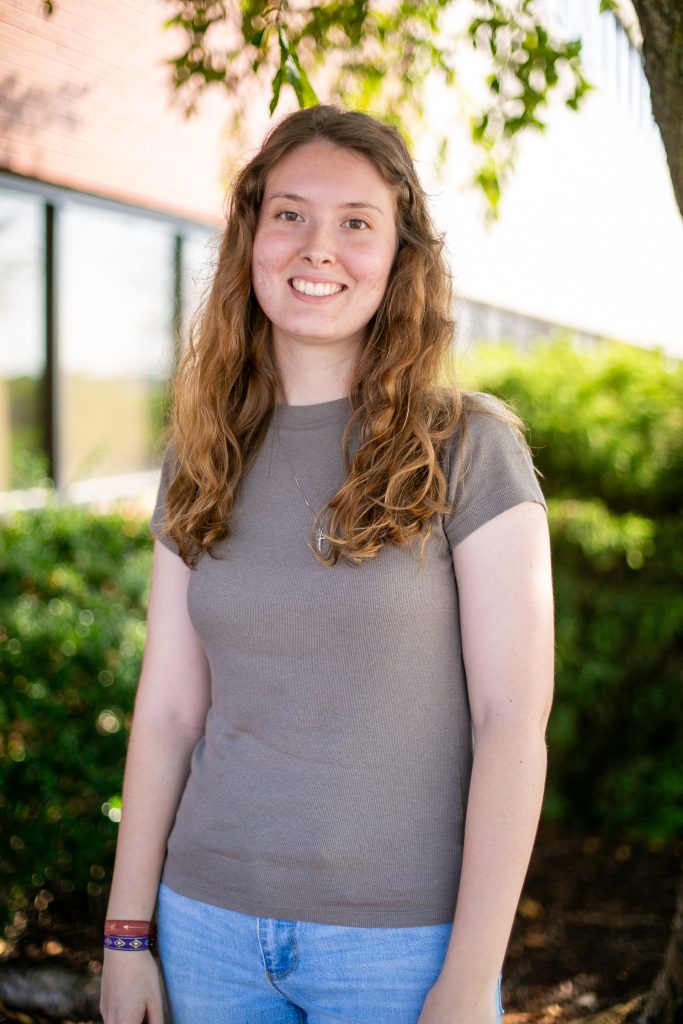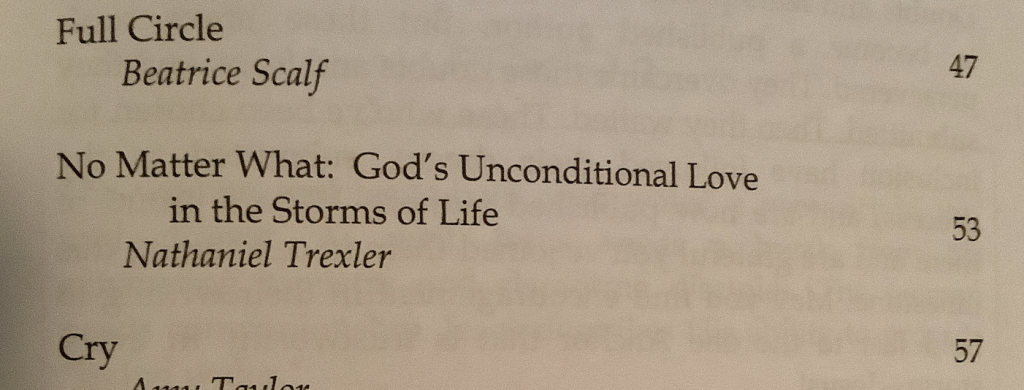I’m not good enough for publication.” “Who would want to read my story?” “Why am I even still writing this?”
These thoughts churn in many writers’ minds. But publishing their work might not be as out of reach as they think. Several Liberty students have taken their writing from classes, whether fiction or nonfiction, and used it to accomplish their goal of publication.
In his nine years of teaching at Liberty, Professor Alex Grant has seen several students published, both in the English department’s LAMP Literary Magazine and in outside publications.
LAMP publishes poems, fiction, creative nonfiction and art from Liberty students and alumni. Students can submit their work to LAMP and, if selected for publication, will work with editors until their pieces are complete. Grant suggests that LAMP can be a good place for students to try their hand at publication for the first time.
“I think for a lot of creative people, they get a sense pretty early on in their life that they’re kind of an odd duck. People tell them things like, ‘Why do you sit around making up stuff all the time?’” Grant said. “I think for some, publishing is a way of feeling validated and doing what they’re driven to do … I think some people keep writing because it helps them understand the complexities of the world and their place in it.”
Professor Nathan Valle has also seen students become published, mostly from his Writing as Cultural Engagement (ENGL 417) class. Students have published opinion pieces in local newspapers, journal articles and essays in publications like “Christ and Pop Culture.”
Both Grant and Valle advise students to start small in their publication journey and reach out to local publications or publications with a small pool of submissions. Grant explained that a lot of authors will get rejected, not because of poor writing, but because publications can only accept a few submissions, the submission is too similar to something recently published or the piece does not fit the audience.
Valle attested to the differences between various short-form publication processes. He explained how some academic journals may have a revision process that stretches over several months. However, some magazines and publications have “quick turnaround times” where the writer has to work with a “flurry of editorial feedback.”
“Simply put, for many of us, the opportunity to publish will be found once we learn how to live and think well,” Valle said. “In the meantime, we need to think of writing as an art like painting and music. Learn from those around you, take writing and English classes, seek out truthful and good criticism for your own work, and remember that it is a craft with a long tradition. … Know that your journey to being published shouldn’t be compared to anyone else’s.”
Jenna Feaga, a senior studying secondary English education, has two poems set to be published by INK Babies Literary Magazine. The first poem is titled “The Places I’ve Lived,” and Feaga described it as a poem meant to “explore the feelings of transiency” that come with living in different homes. Her second poem is titled “An AI Robot Could Never Write This,” which is a reactionary piece to the recent issue of using artificial intelligence in creative works.
Both of Feaga’s poems were part of an assignment she had written for her Introduction to Creative Writing (WRIT 201) class. Before taking this course, Feaga did not know anything about publishing or that publication was a real option for her works.
“I was always writing for myself and never felt ‘good enough’ to invest time in finding places to publish what I was writing,” Feaga said. “The advice from my professors to ‘go for it’ was really encouraging as they have such a vast knowledge of good writing.”
Feaga took the revisions and edits she got from workshopping in class and used them to polish her poems. Then, she submitted them for publication.
“My goal is to be the most authentic educator that I can be,” Feaga said. “The teachers and professors that I have had in the past have inspired me so much, and I hope to foster that same love of literature and writing to my students.”
Like Feaga, Nathaniel Trexler, a senior studying English and writing, published a piece he once submitted for class. His article “No Matter What: God’s Unconditional Love in the Storms of Life” was included in the anthology “Anchor in the Storm,” which was compiled by Living Parables of Central Florida and organized by EA Books Publishing.
This article originated as Trexler’s creative nonfiction essay for Editing for Publishing (WRIT 400).
“My article covers some of the thoughts and struggles believers might face if they feel like they have messed up too much for God to love them,” Trexler said. “(It) ends with a word of encouragement that no matter what, those in Christ do not have to fear losing God’s love for them. He is our sure anchor, and even if we feel overwhelmed by mistakes, we can rest in the fact that God has forgiven all of our sins because of Christ’s sacrifice.”
The Living Parables of Central Florida picked up Trexler’s work when he submitted it to them in a Christian writing contest. After his piece was selected for the anthology, the publishing house notified Trexler of a few changes they wanted him to make. After he made the edits, he sent a revised version to the publisher and a few months later, he saw the anthology listed on Amazon.
To other students looking to publish, Trexler encouraged, “If (God) has given you a story to share, he will help you find the best way to share it, whether that is traditional publishing or some other form.”
Bear is the feature editor for the Liberty Champion. Follow her on X

